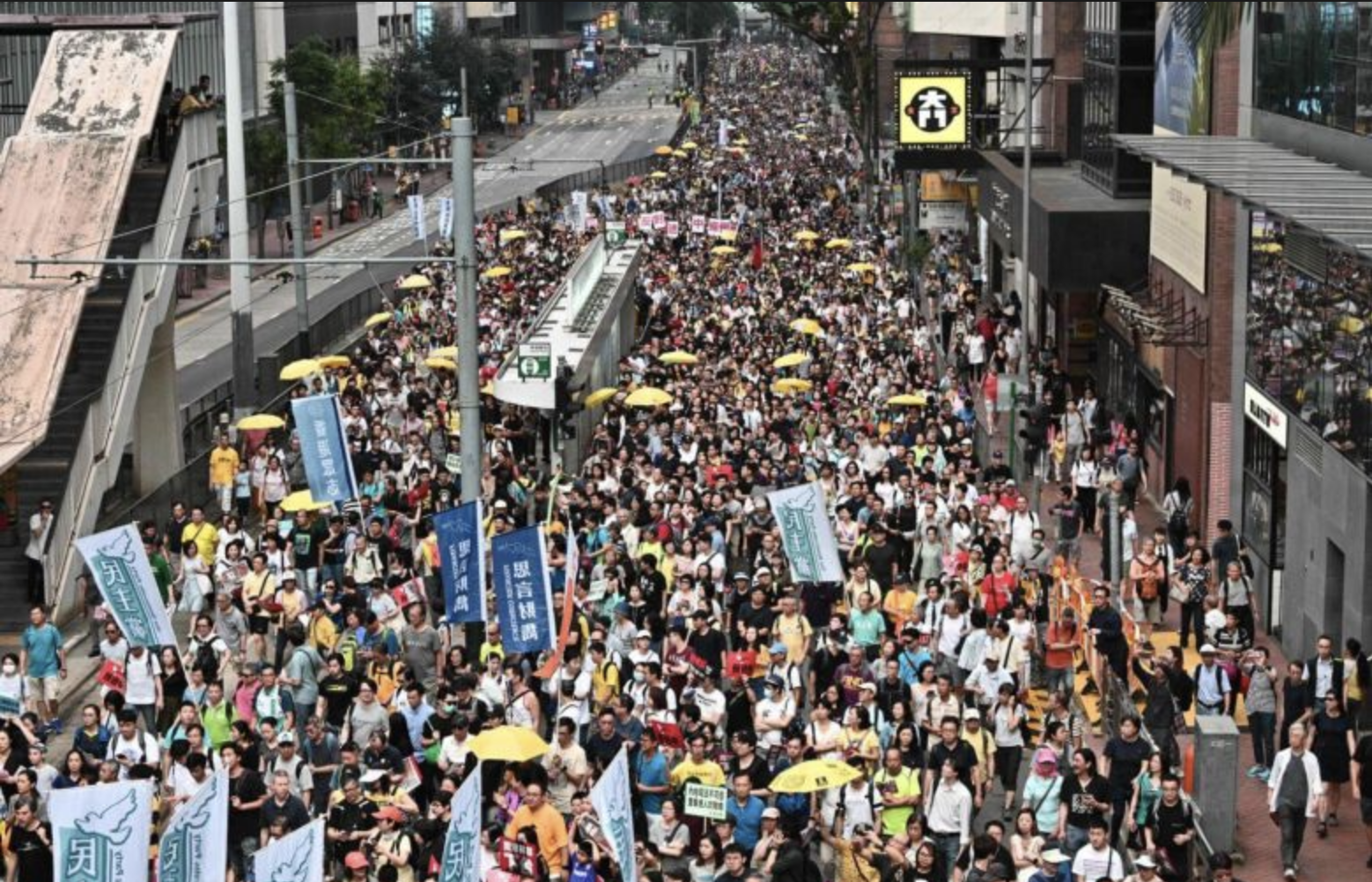
On April 28, an estimated 130,000 people took to the streets in Hong Kong to protest against a proposed extradition law that could potentially allow the Chinese government easier access in extraditing people to China to face trial. This highly controversial law would in effect ratify formal extradition deals between Hong Kong and countries/territories that includes China, Taiwan and Macau. Sunday’s protest had been described as being the largest turnout since the Umbrella Movement for democratic reform and free elections in 2014.
Under current Hong Kong laws on extradition, if there are no standing agreement with the requesting country, then extradition would procedurally go through different levels of oversight. First, a chief executive, who was appointed by Beijing will have to sign off on a case-by-case basis, and then go to the legislature for review. This way, it provides residents a level of protection where accusations from a foreign country are weighed against Hong Kong laws before extraditions may take place.
However, the proposed legislative changes will open extradition on a case-by-case basis and totally bypass legislative review. These changes had led to major concerns felt by The American Chamber of Commerce, the Hong Kong Journalists Association, the Hong Kong Bar Association, as well as other democratic organizations and Hong Kong residents about the proposed bill’s impact on the city’s autonomy which operates under the principles of “one country, two systems”.
This in fact is a valid concern over basic human rights and freedoms due to China’s stellar conviction rate of over 99%, where nearly all indictments in China led to convictions. President Xi Jinping, was even quoted at a 2015 speech that the law would be a “knife held firmly in the hands of the party”.
In that respect, because the Chinese justice system including its courts and police agencies are the instruments of the Communist Party, this new law comes as a threat to journalists, whistleblowers, missionaries and religious leaders alike to toe the line of Party rules. In fact, if anyone were to be found teaching the Bible to people from China in Hong Kong, it can become grounds for the Chinese government to extradite persons of interest for trial even though ministering is permissible within the city.
Hong Kong, once viewed as a sanctuary to Communist rule and served as a gateway into China’s mission fields may now turn treacherous for those who speaks against the Communist Party and to those who spreads the word of God.
logo-pantone-solid-coated-fade-in.png)